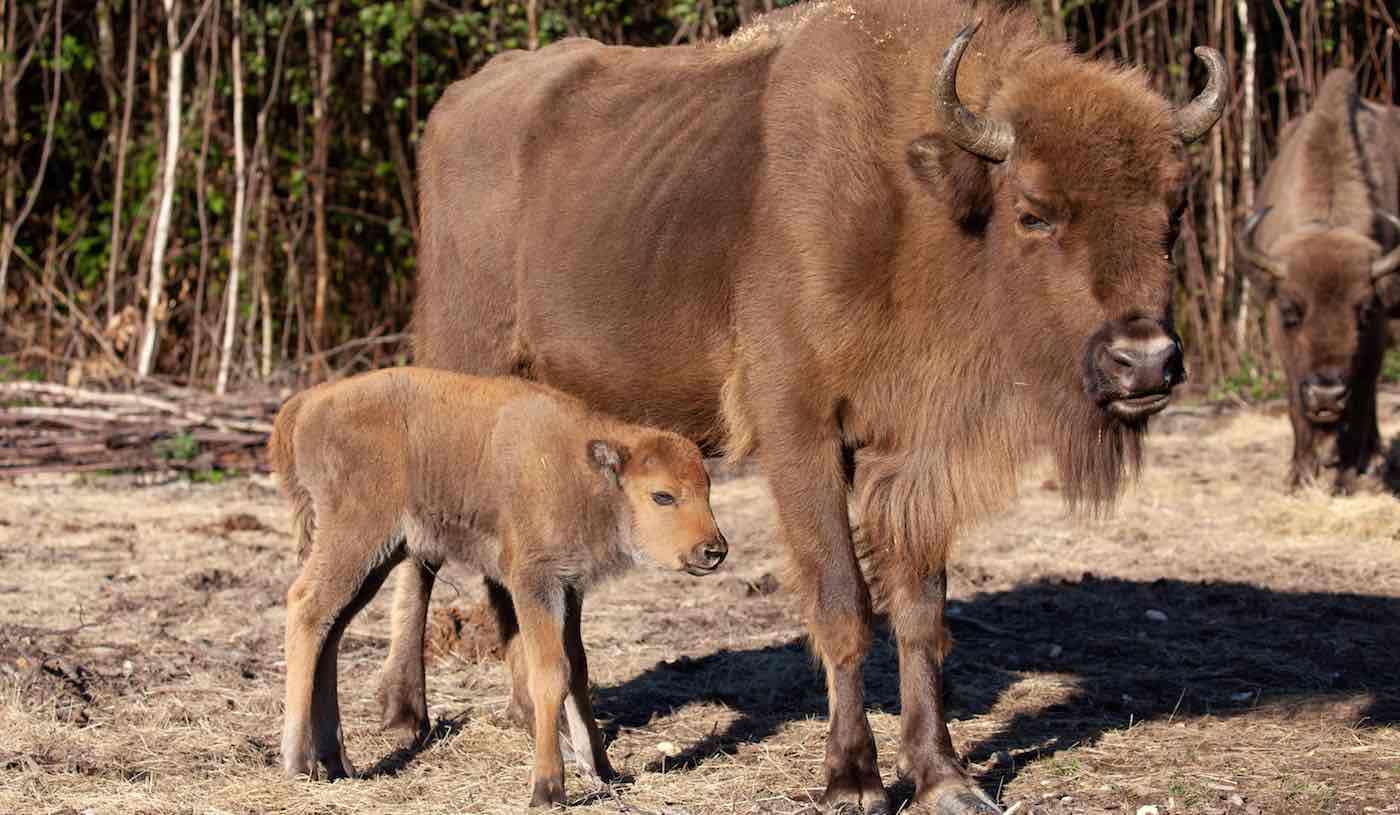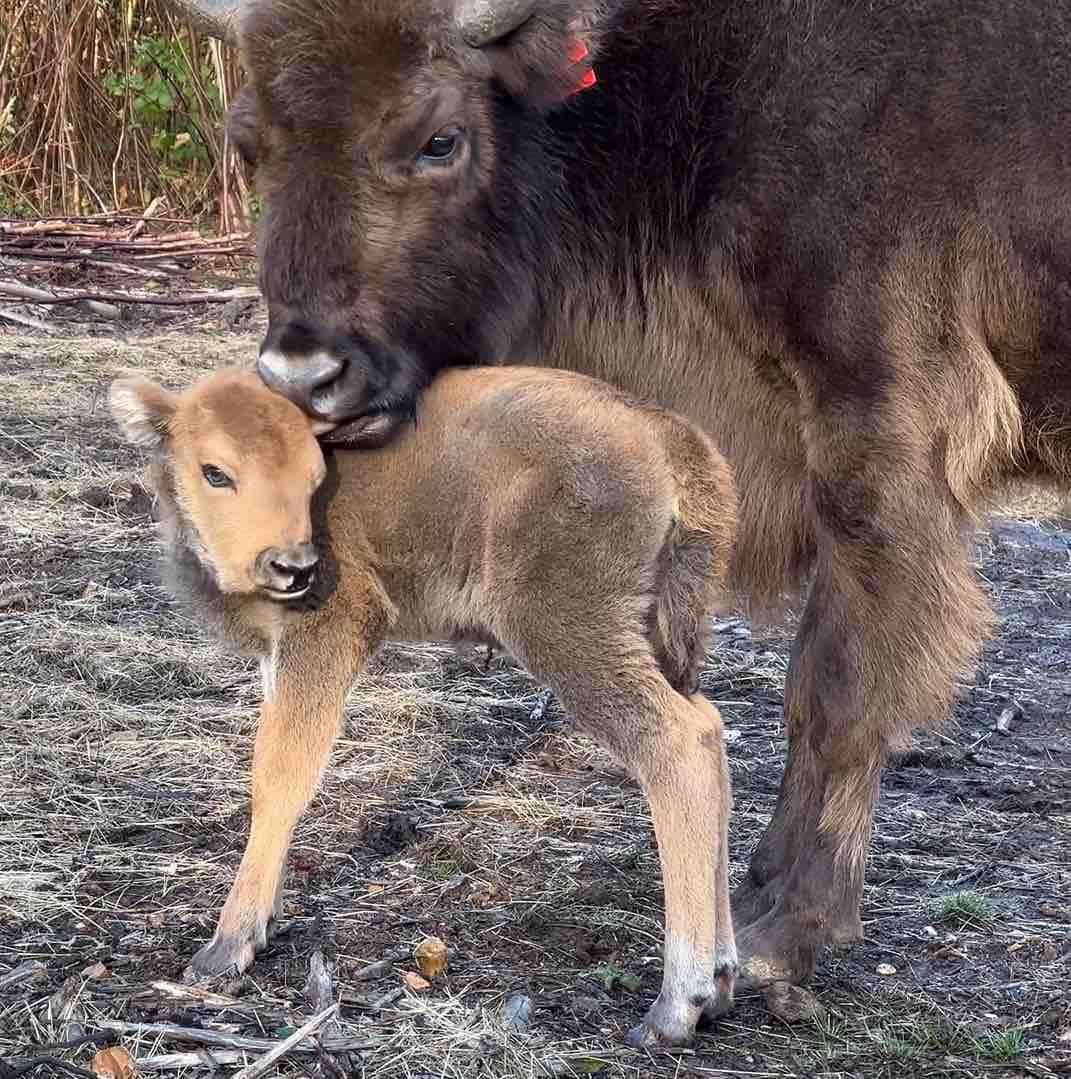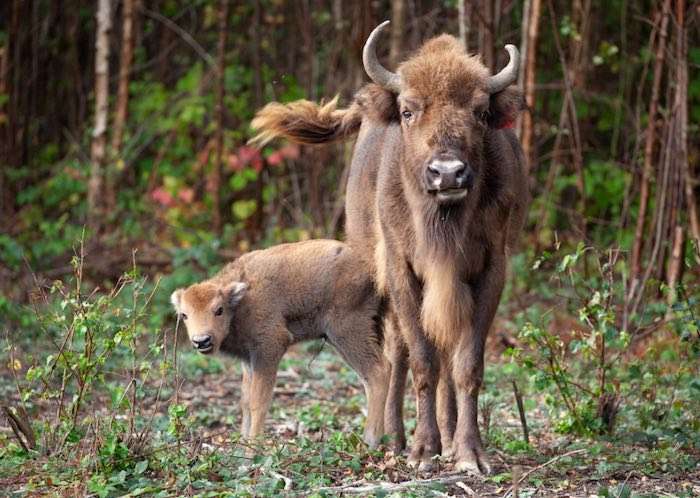Stunning 4th Century Mosaic Depicting Trojan War Unearthed in Syria Beneath a War-Torn City
A stunning Roman mosaic unmatched in Syrian art history was unveiled last week depicting heroes of the Trojan war and Greek mythology.

The first wild bison to be born in the UK in almost 6,000 years has been announced just months after a small herd was brought to Kent in England.
The Wilder Blean project near Canterbury only released the bison into the wild in July—and organizers got the surprise of a lifetime, because one of the them had turned out to be pregnant.
Weighing the size of a small car, an adult bison's pregnancy is undetectable, which is a survival mechanism that deters them from being targeted by predators, so when the little female was born rangers were delighted.
"When the bison took their first steps into the wild just weeks ago, it was hard to imagine that anything could come close to the elation we felt in that moment. But here we are celebrating the arrival of a bison calf," exclaimed Mark Habben, Director of Zoo Operations at the Wildwood Trust.
"We always hoped that the bison would breed, but it is fair to say we were not anticipating it quite so soon," said bison ranger Tom Gibbs.
Her appearance means there are now four female bison in the woodland located in West Blean and Thornden Woods, a project that was funded by the People's Postcode Lottery.

A bull is also due to be introduced in the next two months as part of the rewilding initiative to help combat the climate and biodiversity crises.
Bison act as ecosystem engineers, and through their natural behaviors they create light, space, and fertilizers that prompt wildlife to thrive.
Discovered on September 9, the birth was not announced immediately by Kent Wildlife Trust or the Wildwood Trust.
Rangers say she has developed well, playing in the rain and copying the other bisons' iconic dust-bathing behavior.
"These animals are wild, so we want to remain as hands-off as possible, but their welfare is at the absolute heart of what we do," said Gibbs, who had already created a care plan for any calves to ensure their needs would be met.
"She is being observed by experts and we are constantly monitoring the whole herd to ensure their wellbeing."
They are also preparing for the arrival of a bull from Germany within the next few months and will be carefully planning how that introduction is made, to ensure they bond well and act as a herd should.
"This is now an incredibly important time for this family of eco-system engineers and we understand that people will want to catch a glimpse of this new addition, however we ask people to consider the impact they may have and ask that they are given the space and time they need to bond," added Gibbs.

While remains of European Bison have not been discovered in the UK, they have been found under the North Sea. The site, known as Doggerland, was once a land bridge connecting the UK and the continent. A close relative of the European bison, bison schoetensacki, did however live in the UK around 6,000 years ago before becoming globally extinct.
Like their American cousins, by the early 1900s European Bison were also on the brink of extinction and could only be found in two protected areas—in the former Soviet Union and in Poland.
Fortunately, thanks to conservation efforts, there are now around 5,000 animals on the continent, with around 4,000 living in wild or semi-wild places.
This herd of bison with its new baby is part of a million-dollar ‘rewilding' program led by the Wildwood Trust and Kent Wildlife Trust.
"European Bison are an incredible species," said the Trust's director, Paul Hadway. "To think that their numbers now swell beyond 9,000 is a true testament to the commitment and dedication of international breeding efforts."
Natural bison behaviors—grazing, dust bathing, eating bark, and felling trees—enable other species to thrive.
It is hoped the presence of bison at the 120-acre Blean site, alongside Exmoor ponies and Iron-Age pigs, will transform the woods into a lush, thriving, biodiverse environment once more and allow less hands-on management.
"When the herd arrived they were calm and settled quickly, a sign that the transportation process had not put them under significant duress," said Habben.
CREATE a Stampede For This Wonderful News By Sharing on Social Media…
Be the first to comment